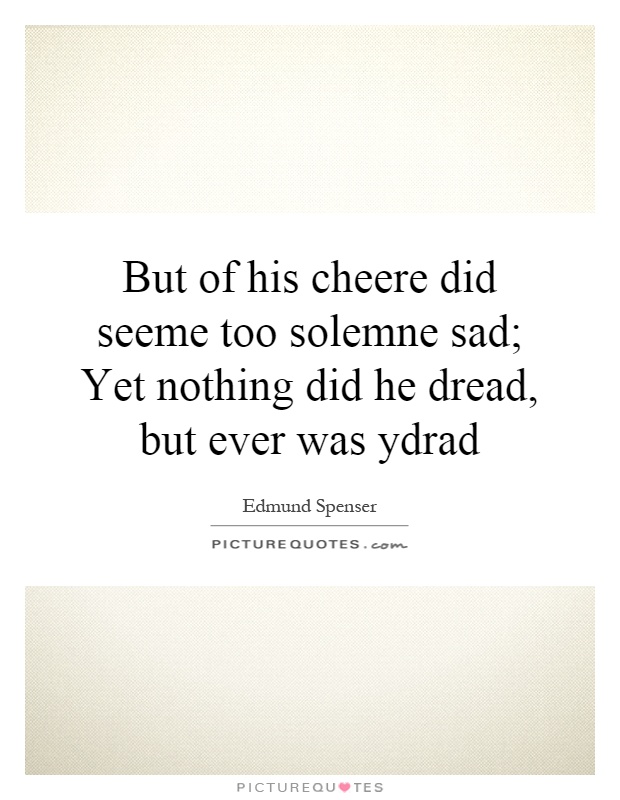But of his cheere did seeme too solemne sad; Yet nothing did he dread, but ever was ydrad

But of his cheere did seeme too solemne sad; Yet nothing did he dread, but ever was ydrad
The line “But of his cheere did seeme too solemne sad; Yet nothing did he dread, but ever was ydrad” is from Edmund Spenser’s epic poem “The Faerie Queene.” In this line, Spenser describes a character who appears to be solemn and sad in demeanor, but who is actually fearless and unafraid of anything.This character is likely a knight or hero in the poem, as bravery and fearlessness are common traits of the knights in “The Faerie Queene.” The juxtaposition of the character’s outward appearance of sadness with his inner courage and lack of fear creates an intriguing and complex portrait of a hero.
Spenser’s use of language in this line is particularly interesting. The word “cheere” can refer to both a person’s facial expression and their overall mood or demeanor. By describing the character’s “cheere” as “solemne sad,” Spenser suggests that the character appears outwardly melancholy or serious. This could be a deliberate choice on the part of the character, as many knights in “The Faerie Queene” are known for their stoic and serious demeanor.
However, despite his solemn appearance, the character is described as having no fear or dread. The word “ydrad” is an archaic form of the word “dread,” meaning to fear or be afraid of something. By stating that the character is “ever was ydrad,” Spenser emphasizes the character’s lack of fear and his unwavering courage in the face of danger.
Overall, this line from “The Faerie Queene” captures the essence of the heroic ideal that Spenser explores throughout the poem. The character’s outward appearance of sadness belies his inner strength and bravery, making him a compelling and enigmatic figure in the world of the poem.












 Friendship Quotes
Friendship Quotes Love Quotes
Love Quotes Life Quotes
Life Quotes Funny Quotes
Funny Quotes Motivational Quotes
Motivational Quotes Inspirational Quotes
Inspirational Quotes